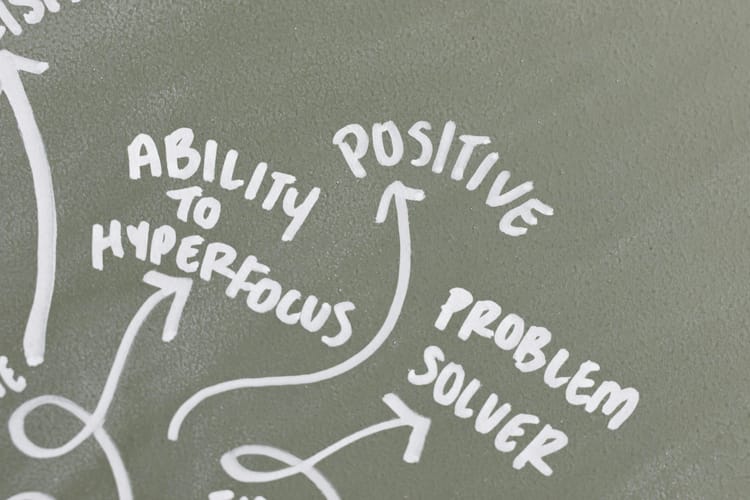Mastering Work-Life Balance: Unlock Your Full Potential for Self-Improvement!

Understanding work-life balance
In today’s fast-paced world, juggling work and personal life can feel like a never-ending balancing act. We’re constantly pulled in different directions—between career goals, family time, and finding moments to just breathe. Finding that sweet spot between professional and personal life is no easy task, but it’s absolutely essential.
When work takes over, it’s easy to feel burnt out, stressed, and disconnected from the things that really matter. But when we strike a balance, we’re not just surviving—we’re thriving. A healthy balance boosts productivity, keeps us happier, and brings more fulfillment into both our work and personal lives.
It’s not about splitting your time perfectly between work and life. It’s about finding a flow that lets you give your best to both without burning out. That’s where the magic happens—when we manage to show up for ourselves and others, with energy to spare.
The importance of work-life balance
Achieving a healthy work-life balance is more than just a nice-to-have—it’s a must. For starters, it’s crucial for your physical and mental well-being. Constant stress and overworking can take a serious toll, leading to burnout, anxiety, and even long-term health issues like heart problems. By carving out time for self-care and fun, you’re not only recharging but also lowering stress and boosting your overall health.
But it doesn’t stop there. A balanced life means better relationships. When you make time for your loved ones, you’re strengthening emotional bonds and building a support system that makes life richer. These connections don’t just help on a personal level—they often spill over into your professional life, providing the encouragement and stability you need to excel.
And let’s talk productivity. When you’re well-rested and refreshed, you show up to work with more focus and creativity. That energy translates into better performance, job satisfaction, and even new career opportunities. Balance isn’t about doing it all; it’s about doing what matters, and doing it well.
Signs of an imbalance in work and personal life
Recognizing the signs of an unhealthy work-life balance is key to making a change. Common indicators include:
- Constant fatigue: Feeling drained and lacking energy can signal overwork or neglect of self-care.
- Neglecting relationships: Prioritizing work over personal connections strains bonds, leading to isolation.
- Declining health: Chronic stress may result in insomnia, anxiety, depression, or physical issues like pain.
- No personal time: Constantly working or thinking about work during off-hours is a clear red flag.
- Decreased productivity: Overworking often leads to burnout, reducing efficiency and fueling a cycle of long hours with diminishing returns.
Benefits of achieving work-life balance
Attaining a healthy work-life balance brings a range of benefits:
- Improved health: Prioritizing self-care, exercise, and leisure helps reduce stress and prevent health issues.
- Boosted productivity: Balance fosters focus, creativity, and motivation, enhancing job performance and satisfaction.
- Stronger relationships: Spending quality time with loved ones strengthens emotional bonds and provides support.
- Personal growth: Pursuing hobbies and learning new skills contributes to self-development and fulfillment.
- Increased life satisfaction: A balanced life leads to greater contentment and overall well-being.
Tips for achieving work-life balance
Achieving a healthy work-life balance takes deliberate effort and smart strategies. Here are some tips to help you find that balance:
Strategies for time management
- Prioritize tasks: Focus on the most important tasks for the day or week, allocating time and energy to what truly matters. This prevents getting overwhelmed by less critical tasks.
- Set realistic deadlines: Avoid stress by being honest about what you can reasonably accomplish within a given timeframe. Clear expectations prevent burnout.
- Learn to say "no": Politely decline commitments that overload your schedule or compromise personal time. Boundaries are key to maintaining balance.
- Batch similar tasks: Group similar tasks together to stay focused and reduce time wasted on switching between different activities.
- Leverage technology: Use productivity apps and tools to manage your time effectively and stay organized.
Setting boundaries and priorities
- Establish clear boundaries: Set specific limits between work and personal life, such as designated hours when you won't check emails or take work calls.
- Prioritize self-care: Make time for activities that rejuvenate you, whether it's exercise, hobbies, meditation, or quality time with loved ones.
- Learn to unplug: Disconnect from work devices during personal time to fully disengage and be present in the moment.
- Communicate boundaries: Let your colleagues, manager, and loved ones know your boundaries to ensure they understand and respect your need for balance.
- Reevaluate priorities regularly: Regularly reassess your work-life priorities and adjust as life circumstances change to maintain balance.
Self-care and mental health for a better work-life balance
Prioritizing self-care and mental health is key to sustaining a healthy work-life balance. Here are some strategies to help:
- Practice mindfulness: Incorporate meditation or deep breathing exercises to reduce stress and promote calm and clarity.
- Get enough sleep: Aim for 7-9 hours of quality sleep each night to support your physical and mental well-being.
- Exercise regularly: Physical activity boosts energy, reduces stress, and improves both physical and mental health.
- Seek professional support: If stress or mental health challenges feel overwhelming, consider seeing a licensed therapist or counselor.
- Engage in hobbies: Pursue activities that bring you joy and allow you to unwind, helping you recharge and stay positive.
Balancing work and personal relationships
Maintaining healthy personal relationships is key to achieving balance. Here are some strategies:
- Schedule quality time: Set aside uninterrupted time for loved ones, whether through family activities, date nights, or deep conversations.
- Be present: Fully engage with your loved ones by avoiding work distractions like emails or calls during personal time.
- Communicate openly: Share your thoughts, goals, and struggles with loved ones, and listen to their perspectives with care.
- Seek support: Lean on your support system when you feel overwhelmed, allowing loved ones to offer emotional support and encouragement.
- Celebrate milestones: Take time to celebrate achievements and special occasions together, strengthening bonds and creating lasting memories.
Tools and resources for maintaining work-life balance
In today’s digital age, a variety of tools and resources can help maintain a healthy work-life balance:
- Time-tracking apps: Tools like RescueTime, Toggl, and Harvest allow you to monitor how you spend your time, helping identify time-wasters and make necessary adjustments.
- Productivity apps: Applications such as Trello, Asana, and Todoist help you organize tasks, set reminders, and prioritize your workload effectively.
- Meditation and mindfulness apps: Platforms like Calm, Headspace, and Insight Timer provide guided meditations, breathing exercises, and mindfulness techniques to reduce stress and promote relaxation.
- Online courses and workshops: Websites like Coursera, Udemy, and Skillshare offer courses on time management, productivity, and work-life balance.
- Support groups and communities: Engaging with online or in-person support groups connects you with others facing similar challenges, providing valuable strategies and encouragement for achieving balance.
Conclusion
Mastering work-life balance is an ongoing journey that demands conscious effort and commitment. By prioritizing self-care, establishing clear boundaries, and employing effective time management strategies, individuals can unlock their full potential for both personal and professional growth.
It’s important to remember that achieving balance isn’t a one-size-fits-all solution. Instead, it’s a personalized approach that requires regular evaluation and adjustment based on your unique needs and circumstances. Embrace the journey, celebrate your small victories, and don’t hesitate to seek support when needed. Each step you take toward balance is a step toward a more fulfilling life, paving the way for deeper connections, greater productivity, and a more profound sense of well-being. Your path to balance is a vital part of your story—so nurture it with care and intention.




